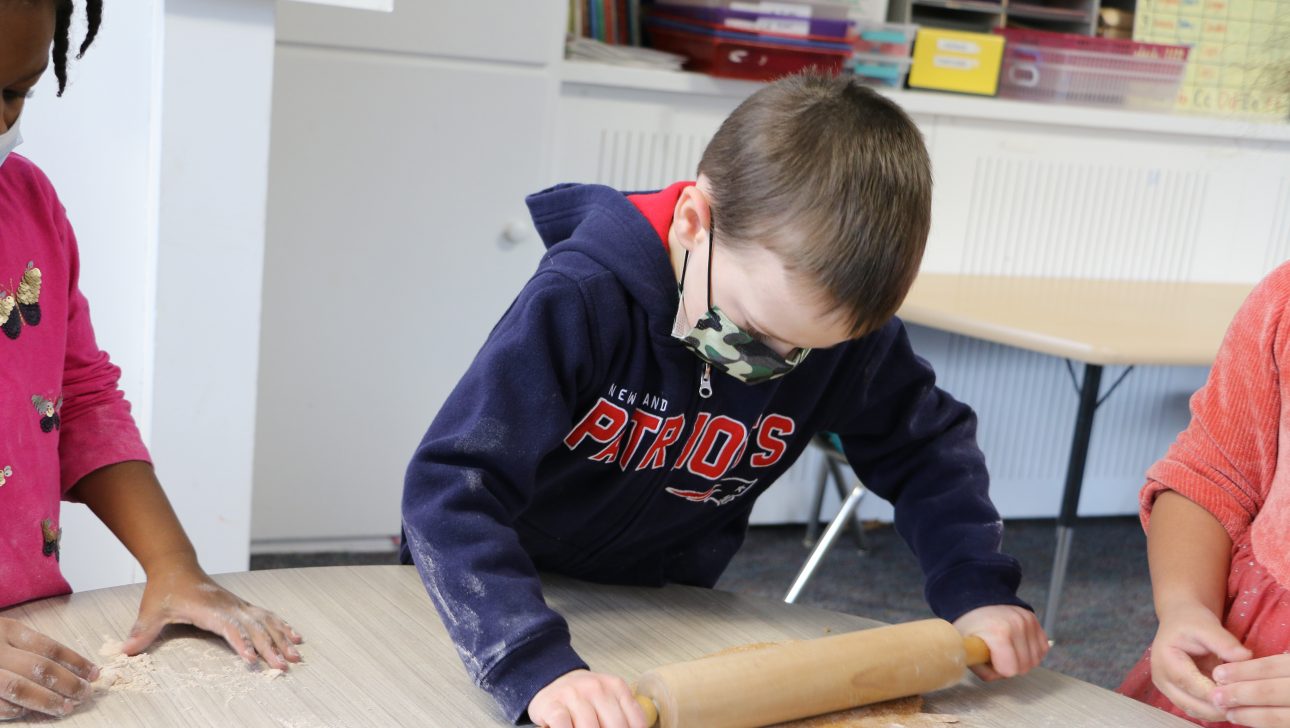By Caroline Swan, DCD Pre-Kindergarten Teacher
While four and five year olds can be surprisingly capable, their self-sufficiency is often underestimated. In DCD’s pre-K, students love to be helpful and feel that they are part of the classroom operation, and we’ve found ways to help them feel empowered by this involvement. Given the proper structure, support, and practice, your little one can be as responsible at home as they are in the DCD pre-K classroom!
Here, we list a few of the strategies we apply daily in Huntington House.
- Create the right environment. The classroom (or household) needs to be highly organized and consistent. This applies both to the physical layout of the space, and the rhythmic layout of a schedule. Objects need to have logical spots so that students know where to find things (and where to put them away). Consistent transitions and routines are also important in creating the right environment for self-sufficiency. With a predictable schedule, students know what to expect and how to smoothly operate within our expectations for them, transitioning predictably between activities or roles. When a strong rhythm is employed, students feel less of a need to ask the teacher (or parent) what to do or where to go, as these regular activities quickly become habits.
- Slow down, and let students answer their own questions, or solve their own problems. Adults can be so quick to answer questions, and in doing so can often prevent the student from figuring out the answer themselves. When a child asks a question or has a need in the pre-K classroom, we often find it helpful to respond with “What do you think?” or “How could you solve that problem on your own?” This takes time and patience, but four and five year olds are tremendous problem-solvers, and can often figure out what to do without being told. In a safe environment, adults can step back and allow the children to step forward.The same is true with self-help skills. Young children are able to do so much more than we think, but often adults are in such a hurry that it can seem easier to do things for them. By slowing down and giving our little ones the time to try that task on their own, we aren’t only helping them to build these important self-help skills, but also aiding in the growth of their own sense of self-confidence.
- Set high expectations for helpfulness and responsibility. Classroom jobs are one practical way that we employ this tip on a daily basis, but we ask our students to be essential parts of the daily operations in many other ways as well, from fetching things that the teacher needs, to checking in on a friend who needs help. When our students understand what we expect from them, they’re quick to rise to the occasion and show us how capable they really are!
- Appreciate, acknowledge, and praise. Work to notice the times when children are independent, and point them out. Acknowledge how much this helps you, and how it adds to the calm, collaborative feel of the classroom or the home. Sometimes, seeing how proud you are of their accomplishment is the best reward of all, and the best encouragement in continuing to build these important habits in responsibility and self-sufficiency!




